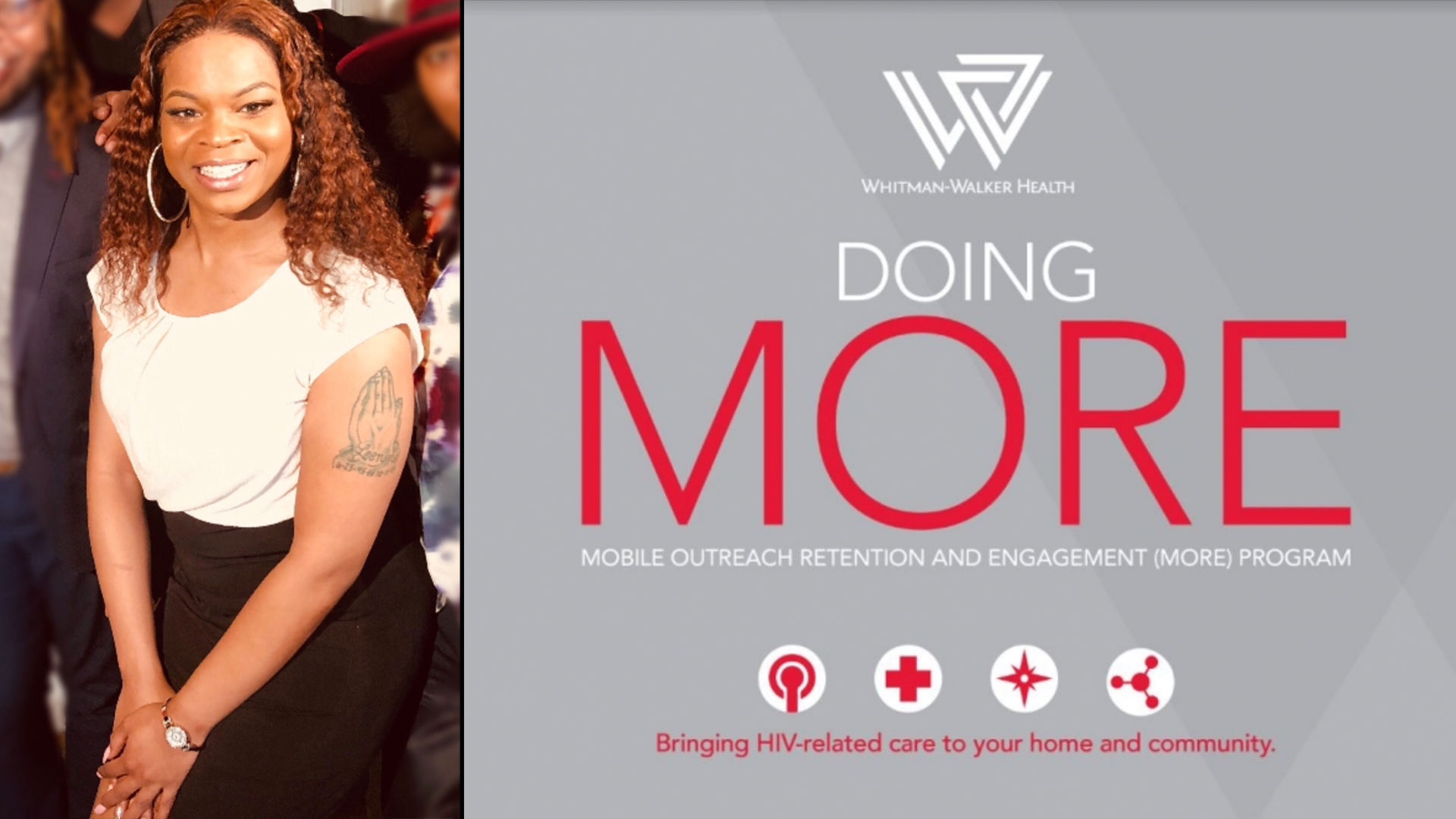Miami alum brings MORE equity and care to HIV patients through innovative viral suppression program.


Emani (Eran) Sargent ’13, MSW ’15, a medical social worker, was speaking to an older woman who had been living with HIV for nearly 30 years. She had also been avoiding treatment, and soon the reason why became clear.
“She was expressing so much internalized shame that, here today in 2020, she is still experiencing as a result of her diagnosis,” Sargent says. “But having these conversations is where you start the healing. That's when you start the journey to overcome some of the obstacles that can keep folks from seeking care, or from their optimal health.”
For the past seven years, Sargent has worked exclusively with people affected by HIV, and her mission is to bring more health equity to marginalized people.
This is also the expertise she brings to her role as the manager for retention and engagement at Whitman-Walker Health in Washington, DC, where she leads a team that includes medical social workers in an innovative HIV program called Mobile Outreach for Retention and Engagement, or MORE.
MORE care, MORE equity
“I don't know of any other programs quite like it in our country,” Sargent says. “MORE is very unique in that it specifically identifies barriers of care and responds to particular individual needs. Washington, DC, is a place where HIV is really prevalent. So we had to come up with creative solutions.”
MORE is designed to increase access to HIV care for marginalized social groups, including racial minorities, low-income individuals, older adults, and those who identify as LGBTQ+.
Even though HIV may no longer be a death sentence, the challenges of living with the virus can be profound. Today HIV is considered a chronic condition that requires ongoing care and education, which are precisely the kinds of services marginalized people are least likely to receive.
Some may struggle to cope mentally because the perceived social stigma may be too great. For others, a lack of money, transportation, stable housing, or even finding time away from other pressing obligations can prevent access to care.
However, when HIV patients are unable to seek services themselves, MORE brings information and treatment to them. It keeps people in care and achieving viral suppression by seeing them outside a traditional clinic, wherever they feel comfortable, usually in their home, and it has been phenomenally successful.
The program has increased viral suppression rates from 44.8% to 86.4% among the hardest to reach populations in just four years.
While medical providers and nurse practitioners provide lab work and medical follow-ups, Sargent manages the program, and leads the team to ensure that all medical treatments also meet a range of emotional and social needs.
These front line medical social workers help patients cope with the disease and feel comfortable, supported, and understood. Providing continuing education to reduce shame and stigma is crucial as well. And they also ensure that services are tailored to specific needs by acting as liaisons between patients and medical staff.
“Patients share things with us that they don't feel comfortable sharing with their medical providers,” Sargent says. “Oftentimes, it is important information that can really shape the care they receive. So as social workers who are part of an interdisciplinary team, it is important to own our role as experts in what we do, to bring our expertise to the team.”
A natural helper and educator
Prior to her role at Whitman-Walker Health, Sargent earned degrees at Miami University, where she was initially an education major until an introduction to social work changed her course.
“I’m a natural helper,” she says. “I’m naturally inclined to help people problem-solve, and that's typically what social workers do. Social workers are just professional helpers who come up with creative solutions and connect with real people. That's what I have been doing for the past seven years.”
Yet, in those seven years -- even as she’s transitioned steadily from working with clients in the field into more leadership roles -- education has remained a central part of her professional life as a medical social worker. “I definitely love being able to bridge the two,” she says.
In addition to training and mentoring her frontline staff, she also represents Whitman-Walker Health as a MORE consultant for the National Alliance of State & Territorial AIDS Directors (NASTAD).
NASTAD is currently evaluating the program’s ability to increase viral suppression as a key measure of successful HIV treatment. The next step is to produce an evaluation guide and a replication manual to highlight and amplify this work.
The ultimate goal, Sargent says, will be to provide other healthcare organizations with the knowledge and resources to create additional new programs that are similar to MORE.
“While HIV is not the same issue it was 30 years ago, it's still a big problem that needs to be addressed,” she says. “With that continued attention and focus, hopefully, we can see a generation that is HIV-free. Because while we've come a long way, there's still a ways to go.”

